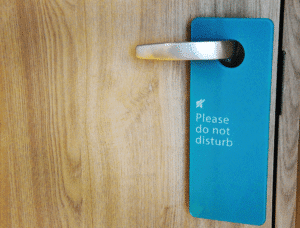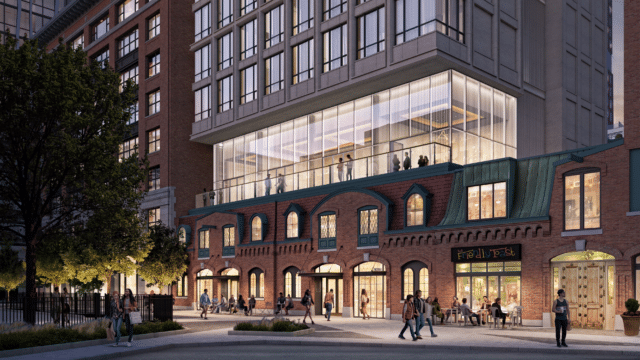
Boston hotel owners will remain insulated from new competition in the near future as difficult development conditions deter new supply. iStock photo
Boston’s anemic pace of hotel construction stands in stark contrast to the widespread recovery of the local industry’s financial performance.
Rather than indicating a stagnant lodging market, the development lull reflects some familiar local real estate conditions. Good hotel sites are hard to find, expensive to buy, slow to gain approval and challenging to finance, industry experts say.
“It’s a hard market to build in any environment, so the existing hotels have a nice advantage,” said Erich Baum, senior vice president at hotel consultants HVS in Boston.
Close to 6,400 hotel projects are under construction nationwide, according to Lodging Econometrics, a Portsmouth, New Hampshire-based data research firm.
Boston has just two: a 240-room hotel and conference center that is part of the Harvard University Enterprise Research Campus’s first phase on Western Avenue in Allston, and Jamsan Hotel Management’s conversion of a former East Boston shoe factory into a 123-room hotel.
Boston also lost a major source of room inventory in Back Bay last year, when the owners of the Sheraton Back Bay leased its 428-room south tower to Northeastern University for a dorm conversion.
Meanwhile, developers of several approved hotel development projects are waiting for financial conditions to improve before finalizing their construction loans.
Back Bay Tower Moves Nearer to Groundbreaking
NB Development, the master developer of the Boston Landing complex, plans to break ground this spring on a 170-room hotel at 180 Guest St., a spokesperson said. The hotel is scheduled for completion in 2027.
The next, and largest, hotel development with potential for an imminent groundbreaking is H.N. Gorin Co.’s 39 Stanhope St. project in Back Bay. The 300-room project would add a 21-story hotel tower behind the facade of the historic stable-turned-restaurant building.
President Rosalind Gorin said the firm is in the final design stages and starting to look for financing sources, but declined further comment on a timeline.
“The market looks very positive, and we’re enthusiastic about the project,” Gorin said in an email.

The largest – and one of the only – hotels in the city’s pipeline that could break ground soon is H.N. Gorin Co.’s Stanhope Hotel in the Back Bay. Image courtesy of JCJ Architecture
Conversions Don’t Guarantee Feasibility
The office market slump points to potential rising interest in hotel conversions. Some recent proposals reflect developers’ interest in adaptive reuse of office buildings in downtown Boston.
Boston-based Rhino Capital received approval in October from the Boston Planning & Development Agency for an 84-room office-to-hotel conversion at 110 Canal St., near North Station.
Throughout 2024, City Realty held off on groundbreaking of its hotel conversion at 7-9 Hamilton Place, reflecting the still-cautious stance of lenders, Director of Acquisitions Cliff Kensington said. The Allston developer plans an 80-room boutique hotel at the vacant Downtown Crossing property, and will seek financing this year, Kensington said in an email.
Chahine Investment Corp. is in the early stages of permitting for conversion of the vacant 400 Atlantic Ave. office building into a waterfront hotel. The Florida developer, which acquired the property last year for $30 million, could not be reached for comment.
Hotel conversions don’t necessarily offer savings from ground-up construction, industry experts say, because of the high costs associated with upgrading base building systems.
“Instead of having a couple of bathrooms on every floor, now you need 25 bathrooms. Plumbing restructuring and building engineering are some of the greatest expenses of going from an office building to a hotel,” said Bruce Ford, senior vice president of business development at researchers Lodging Econometrics.
Global Investors Target U.S. Properties
High barriers to entry have insulated existing hotel properties from new competition, elevating room rates and profitability. Revenues per available room exceeded the inflation rate in 2024, elevating Boston into the highest financial tier of hotel markets along with New York City and Oahu, Hawaii., according to HVS data.
“It outpaced inflation in 2024, which is a pretty decent achievement compared with other markets,” HVS’ Baum said. “There’s momentum in Boston, and you can’t say that about a lot of places.”
The lack of imminent new competition has influenced investment sales prices. In the past year, four major hotel transactions were completed in Boston’s urban core, with prices ranging from $390,000 to $438,000 per room. The high-water mark was set by the Hilton Back Bay, which traded for $171 million, or $438,000 per room.

Steve Adams
By contrast, the average cost of full-service new hotel development exceeds $1,000 per square foot, said Alan Suzuki, a managing director at brokerage JLL in Boston.
“That plays into the story of why it’s difficult to build today. If you are an equity investor and can choose between putting your money into development versus acquiring assets, you can buy at significantly below replacement costs,” Suzuki said.
That equation is unlikely to change significantly in the near future.
According to JLL’s recent U.S. Hotel Investment Trend report, hotel investment sales volume will increase 25 to 30 percent nationwide in 2025. Family offices from Europe and Asia are likely to add to the investor pool, while domestic private equity firms and REIT’s also will remain active, JLL predicts.






